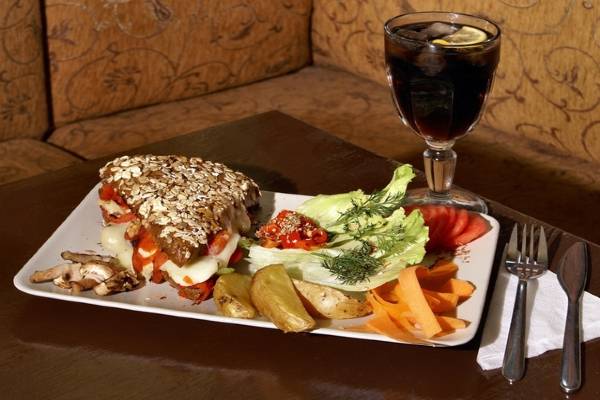Your Ultimate Wine and Cheese Pairing Guide

Whether you’re going all out or just fancy putting together a basic cheese board one night, it is important to select the correct wines to accompany each cheese. Pairing wine with any type of food can be a struggle for a lot of people because they are unsure of where to start. The key to successfully pairing food and wine is to find a balance between the strength and flavour of a cheese with a wine that compliments and enhances the flavours, rather than overwhelms them. There are a number of factors to consider when pairing including the texture, fat, and acidity of a cheese. It is easiest to choose a number of your favourite cheeses, split them according to their type and pair with wines based on the recommendations below. The following guide has been put together to remove the complexity from this pairing process and includes a variety of popular combinations of different wines and cheeses.
Hard Cheese
Cheddar, Manchego, Parmesan, Gouda, and Parmigiano-Reggiano are a handful of the most popular cheeses that fall into the hard cheese category. This type of cheese is typically the easiest to pair with wine and tend to be firm in texture, tangy, and have hints of sweet flavourings. It is said to be difficult to find a red wine that doesn’t go well with hard cheese and its commonly agreed that a medium-bodied red is both the safest and most suitable option due to its strong yet not overpowering flavour. Alternatively, pair your hard cheese with sherry.
Examples of classic wine pairings:
- Cheddar and Gouda are perfect with a full-bodied red wine like Cabernet Sauvignon
- Manchego pairs well with a fruity Rioja red wine which both originate in Spain
- The bubbles in Prosecco act as a contrast to the saltiness in Parmesan, and they both happen to be Italian
Soft Cheese
Some of the most famous types of soft cheese are Goats’ cheese, Ricotta, Feta, and Lancashire. Generally, soft cheese is creamier and fattier than other cheeses which makes this type of cheese perfect to pair with an acidic white wine due to the refreshing taste and the fact it doesn’t overpower the delicate flavours of the cheese. Choose between a dry white like Sauvignon Blanc or an ultra-brut sparkling for a perfect, yet simple combination.
Examples of classic wine pairings:
- The tanginess of Goats cheese makes this the perfect cheese to pair with a refreshing, crisp Sauvignon Blanc
- Ricotta cheese is both creamy and sweet which means that a tangy Riesling is a great option
- A bright red wine like Beaujolais is a great match with the saltiness found in Feta cheese
Blue Cheese
Typically, the flavours in blue cheese are a lot bolder which can make choosing an appropriate wine slightly trickier. Classic blue cheeses include Stilton, Roquefort, Gorgonzola, and Bleu d’Auvergne which all have blue veins of mould running through and are particularly pungent. The general rule to remember when pairing blue cheese is that sweet wine tends to work really well with the contrasting salty flavours in the cheese. This works particularly well when the cheese is also creamy. Sweet sherry is a good alternative option, but it is recommended that you avoid most red wines which is often overpowered by the cheese.
Examples of classic wine pairings:
- Roquefort is a strong blue cheese that works well with many sweet dessert wines like Sauternes
- If you fancy something slightly different, a fruity, vintage Port is sweet enough to balance out the strong flavours in Stilton
Washed-Rind Cheese
Washed-rind cheese, or ‘stinky cheese’ as it is more commonly known as, includes the varieties Epoisses, Taleggio, Langres, Stinking Bishop, and Reblochon. The smell of this type of cheese develops during the long aging process, however the flavours are typically more subtle. Therefore, it is important to select a wine that will not overpower these delicate flavours. Generally, a crisp, dry white wine like Pinot Gris works well with washed-rind cheese as well as a number of sparkling wines.
Examples of classic wine pairings:
- Taleggio is a great match for a high-quality Cava or Champagne
- The saltiness in Epoisses makes it the perfect cheese to pair with the dessert wine Sauternes due to the sweet flavours found in this wine
Melted Cheese
While melted cheese is not actually a type of cheese in its own right, wine pairings can differ depending on when cheeses like Camembert and Brie are used to create a classic fondue. This dish is generally more difficult to match wines with, but a crisp white wine is always a good option.
Examples of classic wine pairings:
- Chardonnay works well with camembert due to the balance between the acidity of the wine and the creaminess from the cheese
- Brie requires a cheese that doesn’t overpower its delicate flavours which is why a light red like Pinot Noir is a great combination
Sauternes is a dessert wine which complements the richness of fondue perfectly.
